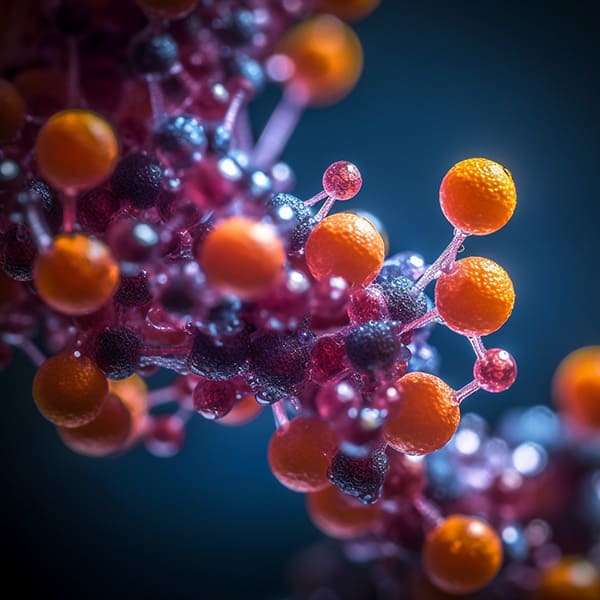Have you ever pondered the question, “How long does Adderall stay in your system?” This is a common question among individuals who rely on this medication; understanding its physiological interactions within our bodies is paramount in ensuring its safe and effective utilization. Let’s explore this query.
Adderall’s detectability: typically 20-96 hours post-use. Specifically, urine tests can detect it 72-96 hours after intake, blood tests up to 46 hours, saliva tests 20-50 hours, and hair tests up to 3 months.

What is Adderall?
Adderall, a pharmaceutical product bearing the brand name, encompasses a formulation of amphetamine salts, which has garnered widespread prescription usage for treating Attention Deficit Hyperactivity Disorder (ADHD) and Narcolepsy. On certain occasions, Adderall is also used for cognitive enhancement. Regardless of the underlying motivation for its usage, a comprehensive understanding of Adderall is of utmost importance for its use.
Understanding how long it takes for Adderall to leave your system can help avoid unwanted side effects and identify potential misuse or addiction. If you or a loved one struggles with Adderall use, our Residential Treatment Center provides comprehensive, compassionate care.
What Can Affect How Long Adderall Stays in Your Body?
Several factors can affect how long Adderall stays in your system.
- Metabolism: A faster metabolism can help your body process the drug more quickly.
- Body Mass: Typically, individuals with a larger body mass can eliminate the drug faster due to a higher metabolic rate.
- General Health: Your overall health can also influence how quickly your body processes the drug. If your body is healthy and functioning optimally, it might clear the drug faster.
- Dosage and Frequency of Use: The more frequently the drug is used and the higher the dose, the longer it can take your body to eliminate it.
Remember, if you have concerns about Adderall use for yourself or a loved one, it may be beneficial to consult with professionals. Our Intensive Outpatient Program provides support for those dealing with substance misuse in a more flexible setting, accommodating individuals who may also be managing their daily responsibilities.

How is Adderall Detected?
While Adderall may not be present in your bloodstream after a day or two, traces of the drug can still be detected in your body for longer. These traces can be found through different types of drug tests:
- Blood tests: Adderall can typically be detected in your blood for about 24 hours after last use.
- Urine tests: This is the most common type of drug test. For most people, Adderall can be detected in urine for up to 72-96 hours after the last dose. However, this can extend to a week or more for regular users.
- Saliva tests: Adderall can be found in saliva for 20-50 hours after the last dose.
- Hair tests: Like many drugs, Adderall can be detected in hair follicles. This test can trace drug use back several weeks or even months, depending on the length of the hair sample.
How Quickly Does Adderall Leave Your System?
Adderall has a relatively short half-life, which is the time it takes for half the drug to exit from your system. For immediate-release Adderall, the half-life is typically around 4 to 6 hours, which means the drug is usually out of your system in 20 to 30 hours. For the extended-release version (Adderall XR), the half-life is about 7 to 9 hours, meaning it could take approximately 35 to 45 hours for it to be entirely expelled from your system.
However, it’s important to remember that these are average figures, and individual factors can cause considerable variation. For instance, a person with a fast metabolism may process the drug quicker than someone with a slower metabolism.
It’s also crucial to understand that while the drug might be out of your system, the effects on your brain chemistry could linger. This aspect is particularly relevant for those who use the medication over extended periods or in larger quantities.
What Can Affect How Long Adderall Stays in Your Body?
Several factors can affect how long Adderall stays in your system.
- Metabolism: A faster metabolism can help your body process the drug more quickly.
- Body Mass: Typically, individuals with a larger body mass can eliminate the drug faster due to a higher metabolic rate.
- General Health: Your overall health can also influence how quickly your body processes the drug. If your body is healthy and functioning optimally, it might clear the drug faster.
- Dosage and Frequency of Use: The more frequently the drug is used and the higher the dose, the longer it can take your body to eliminate it.
Remember, if you have concerns about Adderall use for yourself or a loved one, it may be beneficial to consult with professionals. Our Intensive Outpatient Program provides support for those dealing with substance misuse in a more flexible setting, accommodating individuals who may also be managing their daily responsibilities.
How is Adderall Detected?
While Adderall may not be present in your bloodstream after a day or two, traces of the drug can still be detected in your body for longer. These traces can be found through different types of drug tests:
- Blood tests: Adderall can typically be detected in your blood for about 24 hours after last use.
- Urine tests: This is the most common type of drug test. For most people, Adderall can be detected in urine for up to 72-96 hours after the last dose. However, this can extend to a week or more for regular users.
- Saliva tests: Adderall can be found in saliva for 20-50 hours after the last dose.
- Hair tests: Like many drugs, Adderall can be detected in hair follicles. This test can trace drug use back several weeks or even months, depending on the length of the hair sample.

How Does Adderall Work?
Adderall can be considered a ‘master of chemical communication’ in the brain. It nudges certain neurotransmitters — the body’s messengers that zip from one nerve cell to another, carrying important information. In particular, think of Adderall as a backstage manager, giving a pep talk to two superstar performers in the brain: dopamine and norepinephrine. These two neurotransmitters are key players in the grand stage play that is our brain’s communication system.
How dopamine works
Now, dopamine is like the brain’s ‘reward’ chemical. When something good happens — say, you eat a delicious piece of chocolate cake — dopamine levels surge, making you feel oh-so-good. On a more daily basis, dopamine plays a vital role in motivation, helping you stay focused and finish that report on time or power through a workout.
How Norepinephrine Works
Norepinephrine, on the other hand, is like the brain’s ‘alert’ chemical. It’s responsible for that ‘fight-or-flight’ response you might’ve heard about — the one that keeps you alert and responsive in high-pressure situations. Norepinephrine helps maintain attention and is also involved in the regulation of sleep and mood.
Adderall steps in and enhances the effects of these neurotransmitters. This means it encourages the release of more dopamine and norepinephrine and slows down their reabsorption into nerve cells.
Indeed, the workings of Adderall can be likened to the simple act of cranking up your favorite tune on the radio. This handy metaphor encapsulates how Adderall takes the existing signals in the brain and amplifies them to create a more harmonious mental state. Just as you’d dial up the volume to drown out background noise and savor the music, Adderall turns up the dial on focus and attention, allowing the individual to engage better with the world around them. Suddenly, the messages of focus, concentration, and control over impulsive behaviors are playing loud and clear in the brain. It’s like a signal booster, clearing up the static and letting the music play more smoothly. It helps these individuals navigate their day with fewer interruptions, making life a bit more like a catchy tune and a bit less like scrambled noise.
So, that’s Adderall’s job; it’s dance through the brain. It’s a delicate balance of chemical interactions that results in improved focus and attention. However, remember, a healthcare professional should always guide this dance. Using Adderall without proper professional supervision can lead to potential risks, including dependency and addiction. Always consult your healthcare provider for any queries or concerns about this medication.
Is Adderall Addictive?
While Adderall has proven its effectiveness for those grappling with ADHD, its potential for addiction can’t be overlooked. The focus-enhancing and energy-boosting properties can be a double-edged sword; while they benefit some, they can also pave the path to dependency. This is particularly true if the medication is misused or not taken as prescribed. When administered properly and under careful watch, the addiction risk can be curbed. But let’s make no mistake, the threat of dependency exists.
How Does Adderall Addiction Start?
Adderall addiction isn’t born out of thin air. A cocktail of factors brews it. For starters, Adderall can create an intoxicating sense of euphoria, especially when consumed in doses higher than recommended. This euphoric state can lure users into a repeating cycle. On top of that, Adderall’s ability to supercharge focus and energy can make it a crutch for dealing with hefty work or academic pressures. Over time, this reliance can snowball into a full-blown physical and psychological addiction.
Who’s at Risk of Adderall Addiction?
While addiction threatens everyone, some people are likely to draw the short straw. These include folks with past experiences of substance abuse or mental health struggles. It’s also worth noting that individuals using Adderall as a performance booster without an ADHD diagnosis are skating on thin ice. High-stress students and professionals, too, may be seduced by the misuse of Adderall.
Spotting the Signs of Adderall Addiction
The key to tackling Adderall addiction often lies in early detection of its signs. These warning signals manifest both physically and mentally. On the physical side, you might observe drastic weight loss, interrupted sleep patterns, an uptick in headaches, and a racing heart. The psychological flags can range from unshakeable restlessness, a surge in energy levels, and obsessive behaviors to bouts of paranoia. If these signs sound familiar in your case or someone close to you, it could be a clarion call to seek professional help.
What Happens if You Stop Using Adderall?
Deciding to hit the brakes on Adderall use can be a transformative chapter in your life journey, but knowing what to expect is essential. When the continual intake of Adderall is suddenly brought to a halt, your body tends to react. Your system has grown accustomed to the drug’s effects, and it needs some time to readjust to its absence.
What are the Withdrawal Symptoms?
One of the immediate reactions is what’s often dubbed as an ‘Adderall crash.’ Imagine it as the body’s way of springing back after being pulled in one direction for an extended period. Some individuals report experiencing fatigue, depression, irritability, and a heightened appetite. This collection of symptoms may set in once the drug’s effects wear off.
There’s also the possibility of withdrawal symptoms. These are more intense and may include anxiety, panic attacks, extreme fatigue, and even disturbing dreams. The severity and duration of these symptoms can vary greatly, depending largely on the length and intensity of Adderall use.
It’s important to understand that stopping Adderall suddenly can, in some cases, have serious implications. Therefore, if you or a loved one is contemplating stopping Adderall, it’s advisable to do so under the supervision of a healthcare provider. They can help manage withdrawal symptoms and ease the transition.
Remember, bidding farewell to Adderall use doesn’t have to be a solo journey. Recovery is a journey, and it’s okay to lean on others along the way. Help is available, be it through residential treatment centers or intensive outpatient programs.
How Do You Recover Faster From Adderall?
Keep in mind that there is nothing you can do to change the amount of time Adderall is detectable in your system, but there are things you can do to recover from it’s symptoms physically. Each person’s body is unique and reacts differently to substances, so what works for one may not necessarily work for another. However, specific strategies can help speed up the process, although none of these are quick fixes and all should be done under professional supervision.
Hydrate, Hydrate, Hydrate
One of the simplest yet most effective methods is drinking plenty of water. Hydration not only helps your body function optimally but also aids in flushing out toxins, including substances like Adderall. Aim for at least 8 glasses a day to keep your body’s detoxification processes running smoothly.
Balanced Diet and Exercise
Adopting a balanced diet filled with fruits, vegetables, lean proteins, and whole grains can boost your body’s detoxification ability. These foods provide necessary nutrients for liver function, a key player in your body’s detox process. Regular exercise can also assist in the removal of toxins through sweat and increased metabolic rate.
Get Enough Rest
Sleep may not be the first thing that comes to mind when thinking about detox, but it plays a crucial role in maintaining health and recovering from substance use. When you sleep, your body goes into repair mode, healing and recharging itself. Make sure to prioritize a good night’s sleep to help your body in the detox process.
Detox
For those heavily dependent on Adderall, consider a professional detox program. Detoxification offers a safe, structured environment where individuals can withdraw from Adderall under professional supervision. Check out this resource on Detox Centers for more information.
What If You Need Help?
Understanding how long Adderall stays in your system is just one aspect of this complex medication. If you or someone you know is struggling with substance misuse, remember that help is available.
At Liberty Addiction Recovery, we provide an array of services, from residential treatment to intensive outpatient programs. If you think you might need help, don’t hesitate to reach out. Please visit our Detox Center in Utah for further information, or contact us to speak with a professional about your unique needs.
FAQ
What is Adderall, and why is it prescribed?
Adderall is a prescription medication containing two stimulant drugs, amphetamine and dextroamphetamine. It’s commonly prescribed to manage conditions like Attention Deficit/Hyperactivity Disorder (ADHD) and narcolepsy, helping to enhance focus and manage sleep-related issues respectively.
How does Adderall work in the brain to affect focus and alertness?
Adderall influences the brain’s chemistry, specifically the neurotransmitters dopamine and norepinephrine, which are involved in impulse control and hyperactivity. It amplifies their effects, fostering increased concentration, alertness, and control over impulsive behaviors. The overall effect can be likened to turning up the volume on these neurotransmitters
How long does Adderall generally stay in the body?
The average time Adderall stays in the system varies depending on many factors, including metabolism, dosage, and the individual’s overall health. Generally, however, the effects of Adderall can last 4 to 6 hours for IR and up to 12 hours for XR. Traces of the drug can typically be detected in urine for up to 72-96 hours after ingestion.
Can the duration that Adderall remains in the system vary among individuals?
Yes, the duration can differ significantly from person to person due to variations in metabolism, overall health, age, weight, and even hydration levels.
What factors can influence how long Adderall stays in the system?
Several factors influence how long Adderall stays in the system. These include the individual’s metabolism, body mass, age, hydration level, physical activity, and the specific form and dose of the medication.
What are some of the symptoms or signs that Adderall is still present in the body?
As long as Adderall is present in the system, the user may experience its effects, including enhanced focus, increased alertness, suppressed appetite, and potential side effects like insomnia, dry mouth, or elevated heart rate. Once these effects start to diminish, it typically signifies that the drug is exiting the system.







